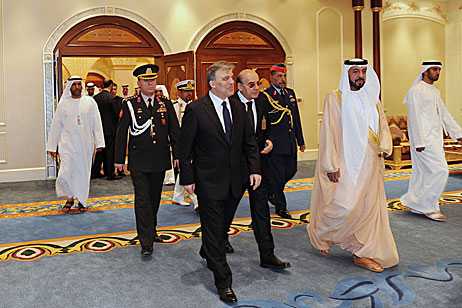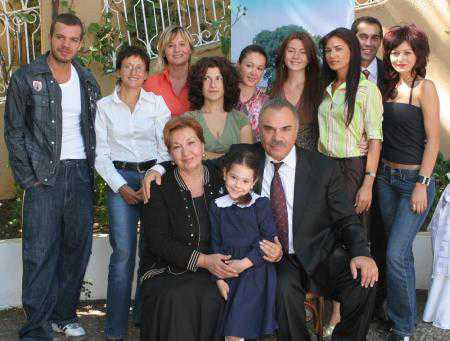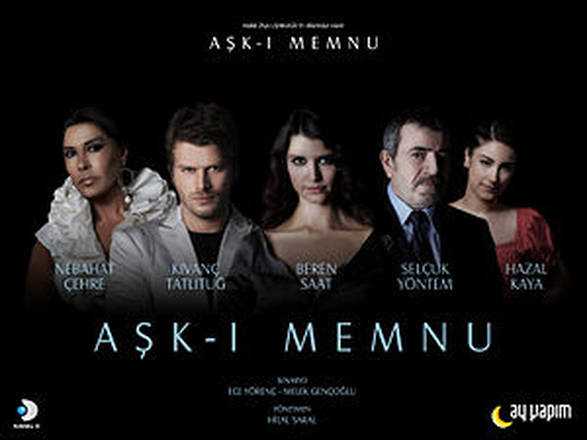ISTANBUL // During a recent visit to the UAE, Abdullah Gul, Turkey’s president, was confronted with an unexpected request.

“Please tell us how the Turkish soap operas on television will end. Otherwise, we will not be able to pry our women away from their TV sets,” Mr Gul quoted his Emirati hosts as saying last week.
Turkish television series have long been popular in the Middle East. Yet they are one reason why Turkey topped a recent poll of most admired nations in the region.
In the survey, carried out by the Turkish Economic and Social Studies Foundation (Tesev), 78 per cent of those polled in 16 countries the Middle East had a very or somewhat favourable opinion of Turkey. The UAE was second with 70 per cent.
In the case of Turkey, respondents said it was a regional model because of its democratic system, economic development and Muslim identity. Three-out-of-four of those surveyed also said they had seen a Turkish television soap – a testament the country’s expanding influence, said Gokce Percinoglu.
“TV series form a part of Turkey’s soft power,” said Ms Percinoglu, an analyst at Tesev, an independent think tank.
Not all Turks were impressed with the survey’s findings.
They said that the country’s high favourability ratings across the region – like the much-touted “Turkish model” – were both soft and misleading.
On the one hand, maintaining Turkey’s positive image depended on democratic progress in the country, they said. On the other hand, its reputation is tarnished by limits on media freedom and a hardening of fronts in the long-running Kurdish conflict.
“More democratisation is the biggest chance for Turkey” to keep improving the favourable perception of the country in the region, Mensur Akgun, a co-author of the Tesev study, said. “But a military intervention or authoritarian tendencies of a civilian government would be risks.”
The government of Recep Tayyip Erdogan, the prime minister, has been accused of overseeing the arrest of about 100 journalists and an increasing number of university students and of abandoning efforts to solve the Kurdish conflict by democratic means. The government rejects the accusations.
Kemal Kilicdaroglu, the leader of the secularist opposition Republican People’s Party (CHP), wrote in Monday’s Washington Post that Turkey under Mr Erdogan could not be a model for the Middle East.
“Turkey today is a country where people live in fear and are divided politically, economically and socially. Our democracy is regressing in terms of the separation of powers, basic human rights and freedoms and social development and justice,” Mr Kilicdaroglu said.
The Tesev poll was conducted by telephone and by in-person interviews between October and December last year among 2,323 people in the UAE, Egypt, Jordan, Lebanon, Palestine, Saudi Arabia, Syria, Iraq, Iran, Tunisia, Oman, Bahrain, Qatar, Yemen and Libya.
According to the survey, 77 per cent of respondents thought Turkey had a positive effect on peace in the Middle East. Another 71 per cent thought Turkey should play a bigger role in the region, 67 per cent said Turkey was a “successful combination of Islam and democracy”, and 61 per cent of people in the Middle East considered Turkey a possible model for the region.
Support for the Turkish model is highest in Libya, Tunisia and Egypt, Tesev said, three countries that overthrew their long-time regimes during the Arab Spring and were visited by Mr Erdogan last year. Support for Turkey is lowest in Syria, reflecting deteriorating ties between Ankara and Damascus over the violence of Syrian government forces against protesters.
The main reason people regard Turkey as a model are its democratic system (32 per cent). Its strong economy (25 per cent) and its identity as a Muslim country (23 per cent) were also at the top of the poll.
While political and economic factors play vital roles in Turkey’s image, the poll also found strong cultural influences, especially its soaps. Murat Yetkin, a columnist, wrote in the newspaper Hurriyet Daily News that Turkish soaps were so popular in the Middle East “because they show that to live a modern and open life in a modern society is possible”, adding that “Turkish soap operas give messages of hope that a modern political, social and economic life can be lived by Turks, as well as by Arab viewers”.
The role of cultural factors such as television shows was hard to quantify, “but the influence is there”, Mr Akgun said.
For Zayed University students, that seems indisputable.
When Mr Gul, Turkey’s president, met them during his recent visit to the UAE, they asked about Muhtesem Yuzyil, or Magnificent Century, a Turkish TV series about the life of Suleiman the Magnificent, an Ottoman sultan of the 16th century.
“They are all following that show,” he later told reporters.
via Turkey has a star role in more than just TV drama – The National.



